Comparison Worksheets for Ages 4-9
19 filtered results
-
From - To
Discover our engaging Comparison Worksheets designed specifically for children ages 4-9! These worksheets foster essential math skills by helping young learners understand the concepts of greater than, less than, and equal to. With colorful illustrations and interactive activities, children will enjoy practicing comparison tasks in a fun and stimulating way. Whether at home or in the classroom, these resources are perfect for reinforcing math fundamentals and boosting confidence in young mathematicians. Explore a variety of carefully crafted exercises that cater to different learning styles, making math an exciting adventure for kids. Start your child’s journey towards mathematical mastery today!
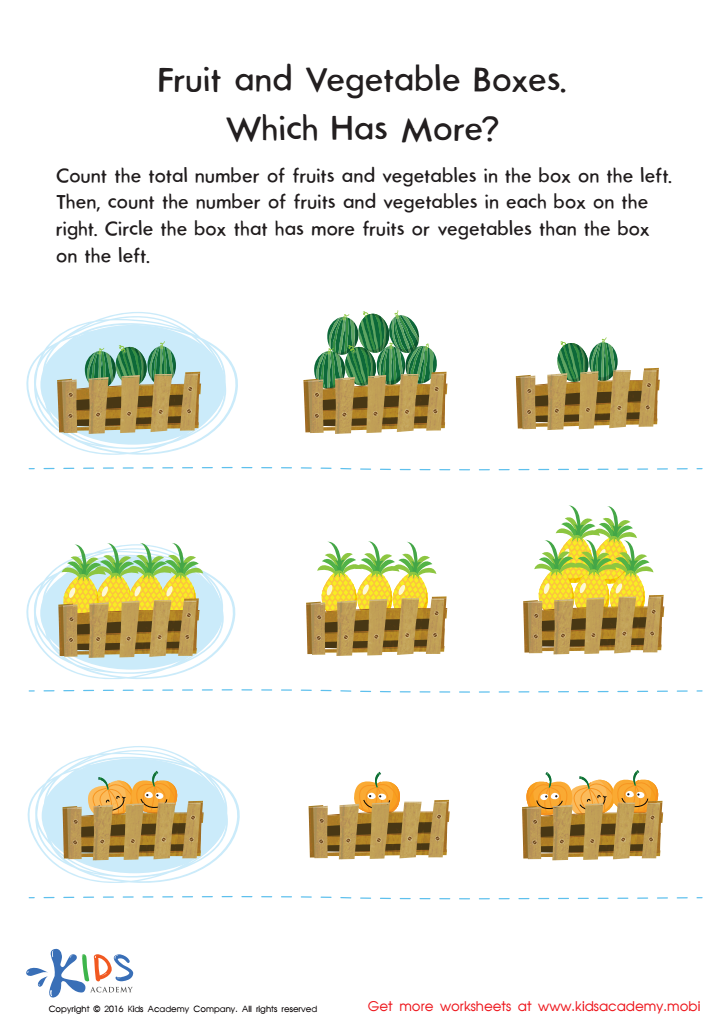

Which Has More? Size Worksheet
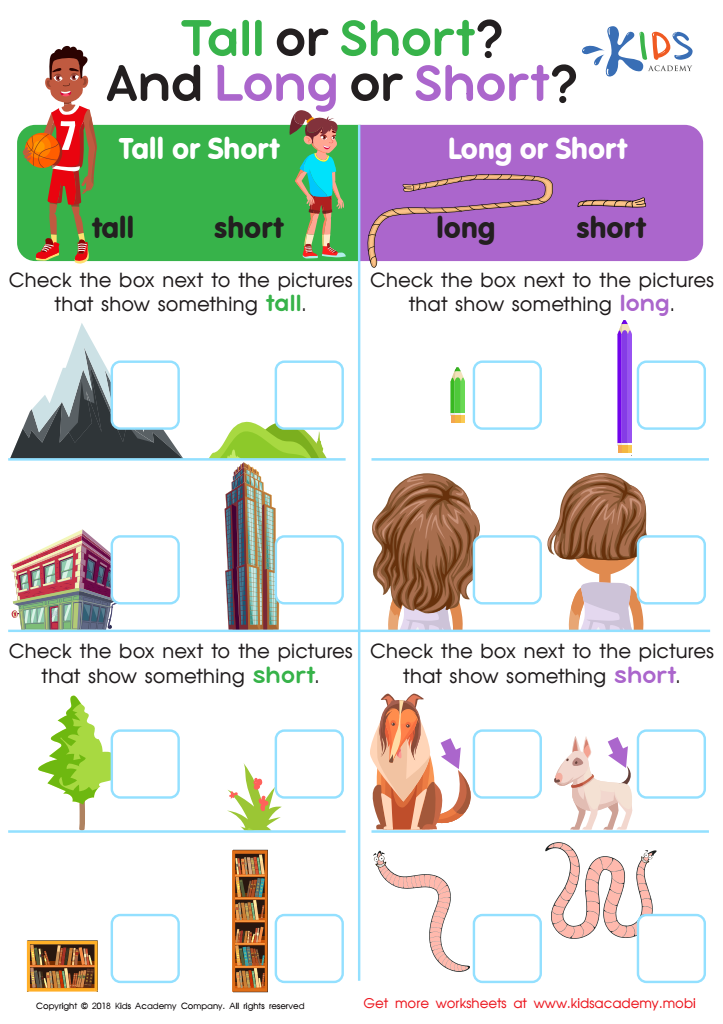

Tall or Short and Long or Short? Worksheet
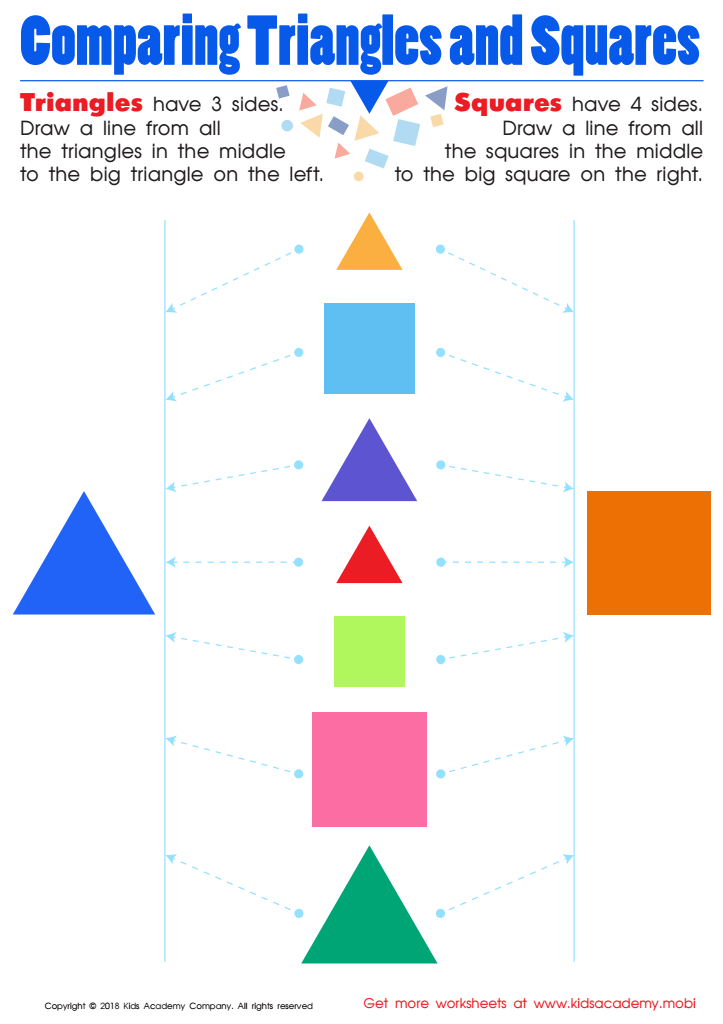

Comparing Triangles Squares Worksheet
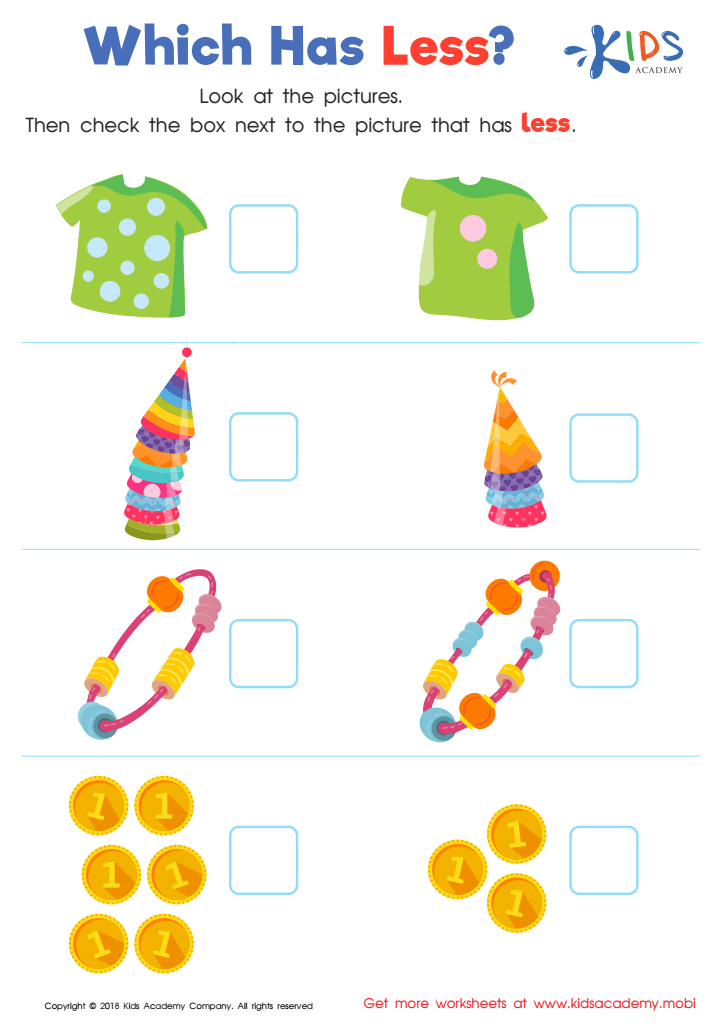

Which Has Less? Worksheet
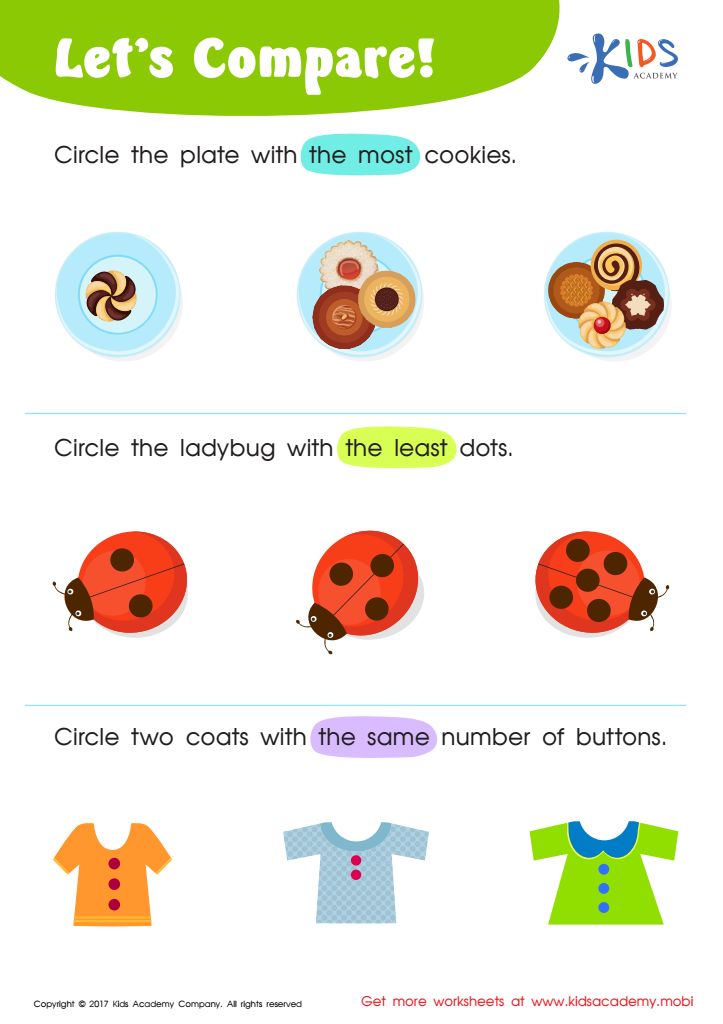

Matching: Classifying Toys by Size Worksheet


Matching: Classifying Toys by Size Worksheet
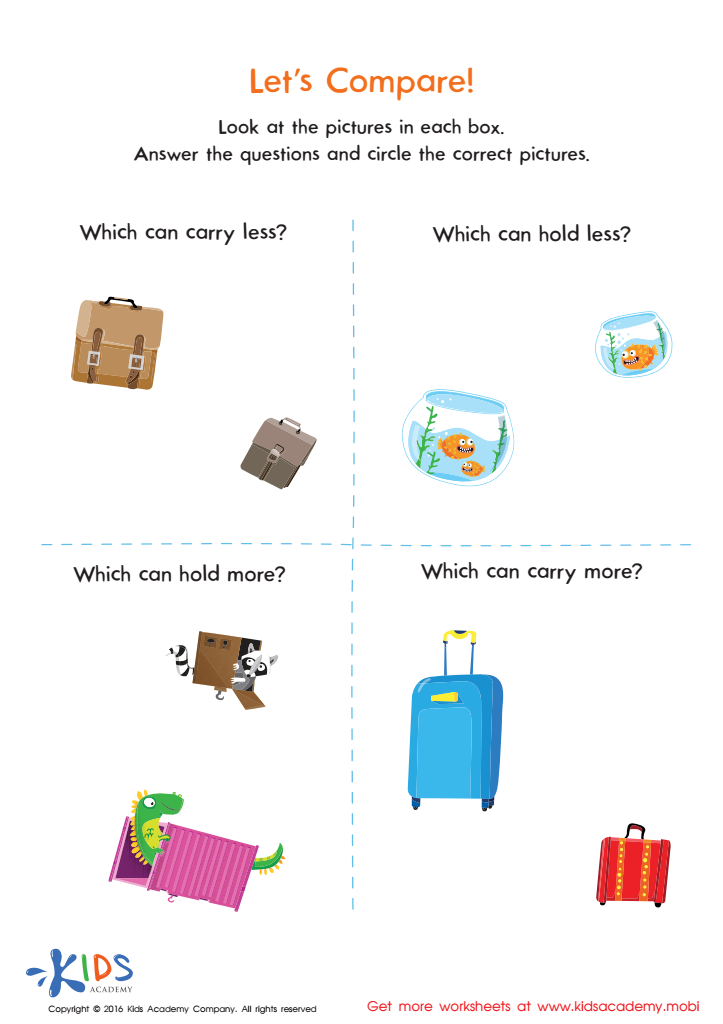

Let's Compare Worksheet: Big or Small
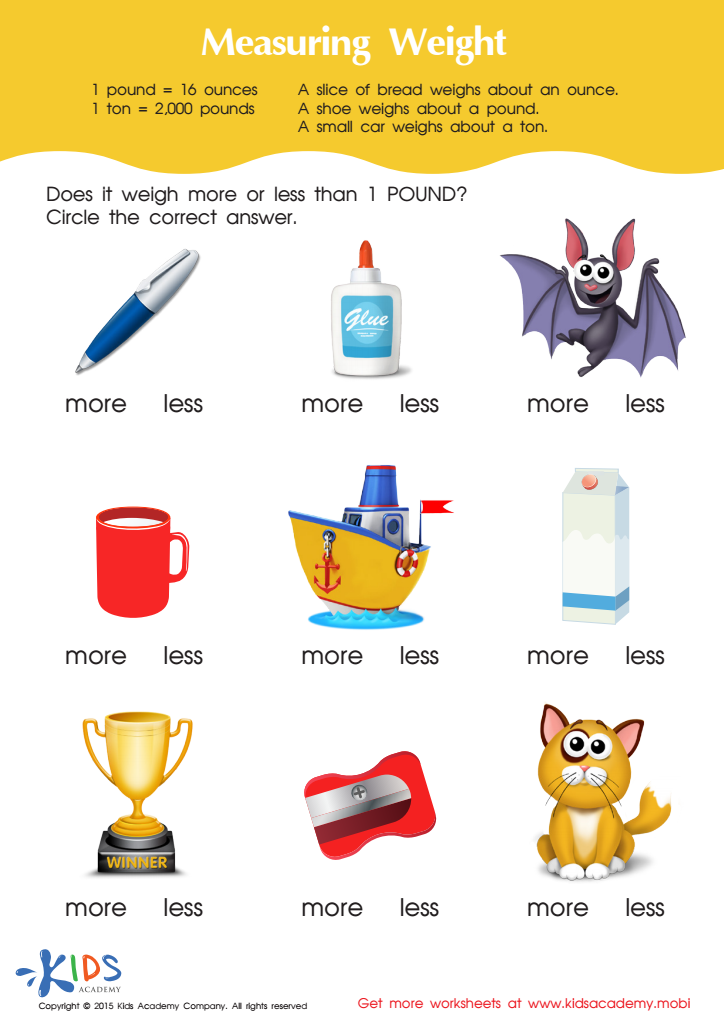

Measuring weight in pounds Worksheet
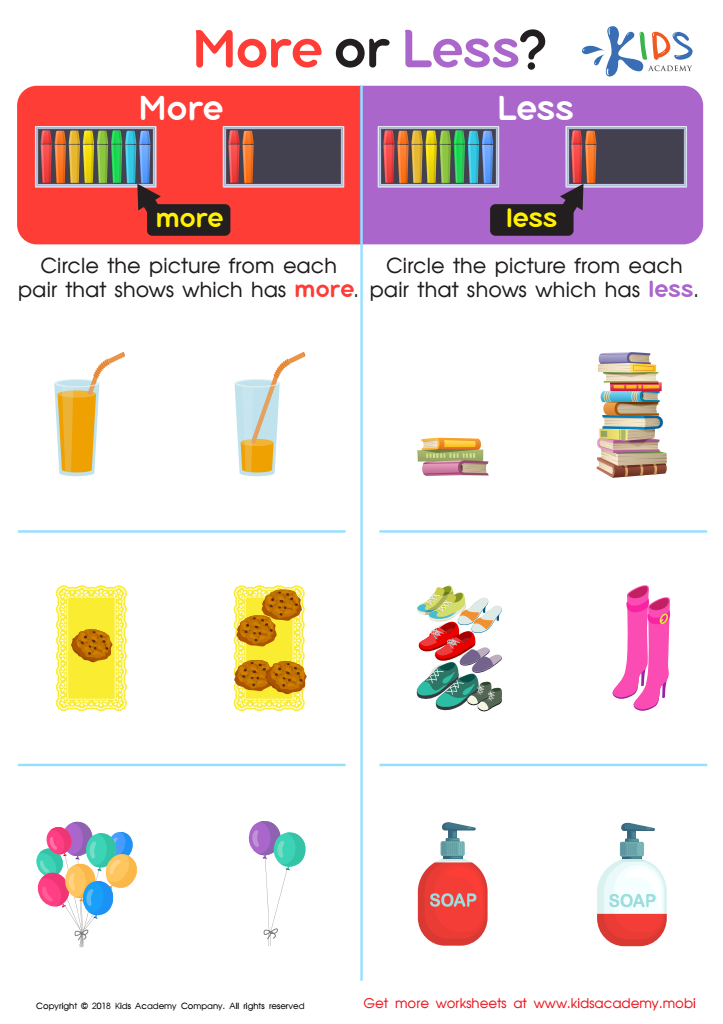

More or Less? Worksheet
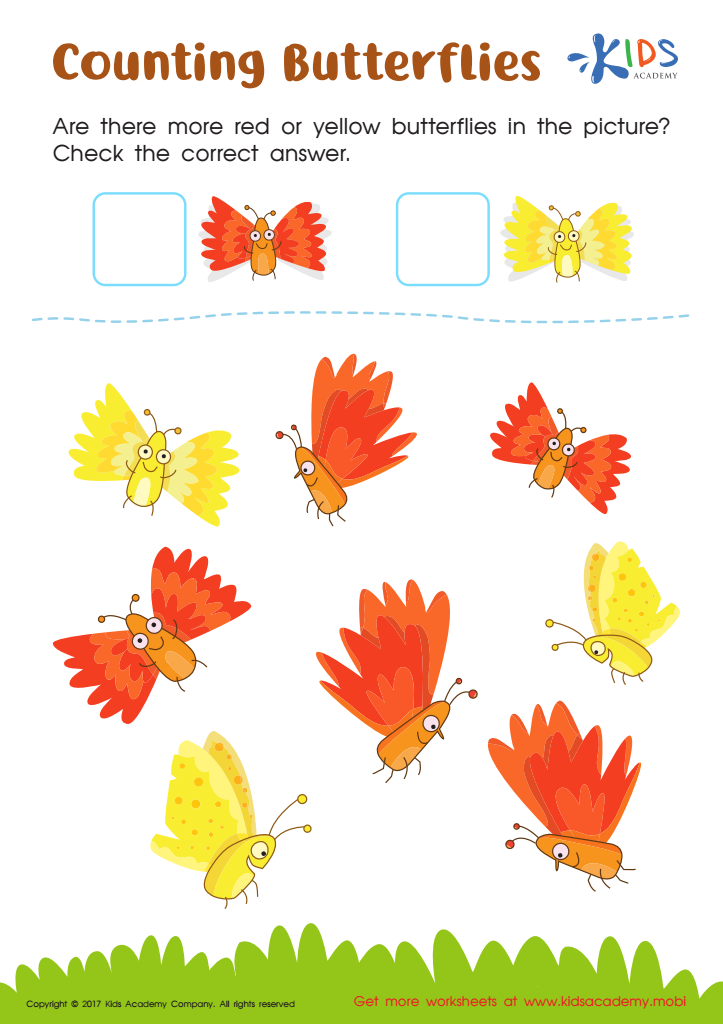

Counting Butterflies Worksheet
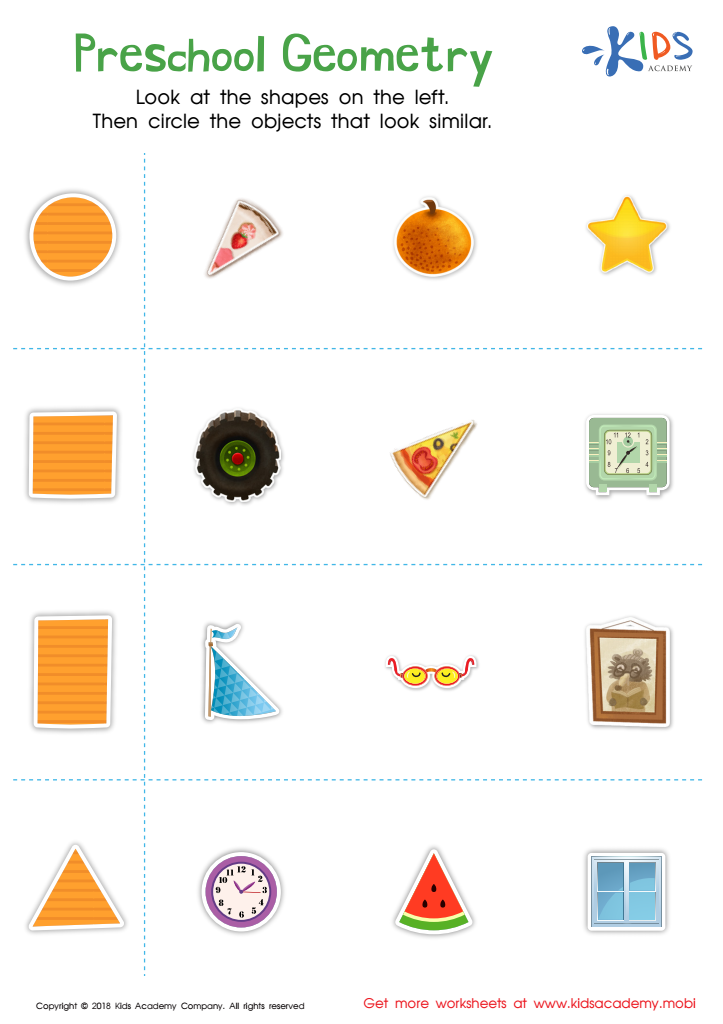

Preschool Geometry Worksheet
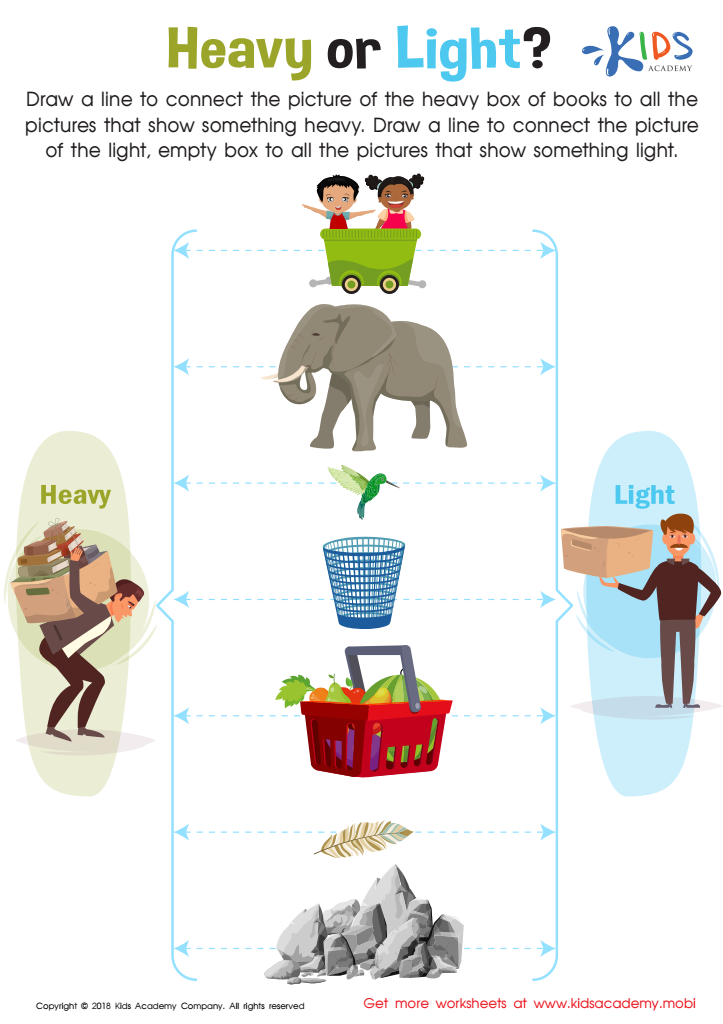

Heavy or Light? Worksheet
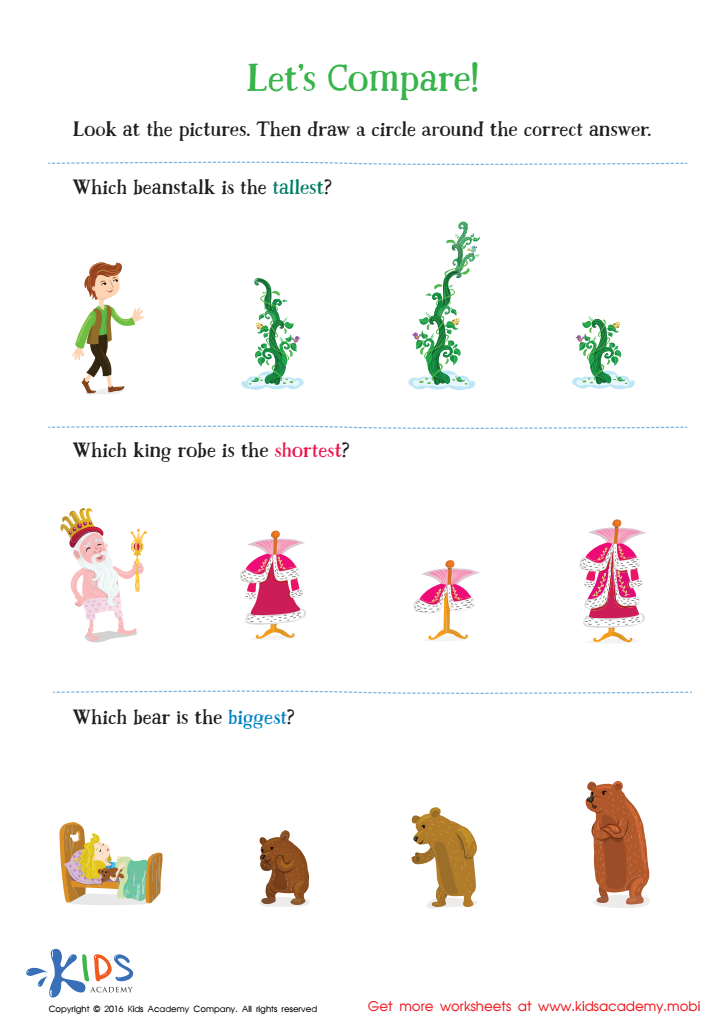

Fairy Tale Worksheet: Let's Compare
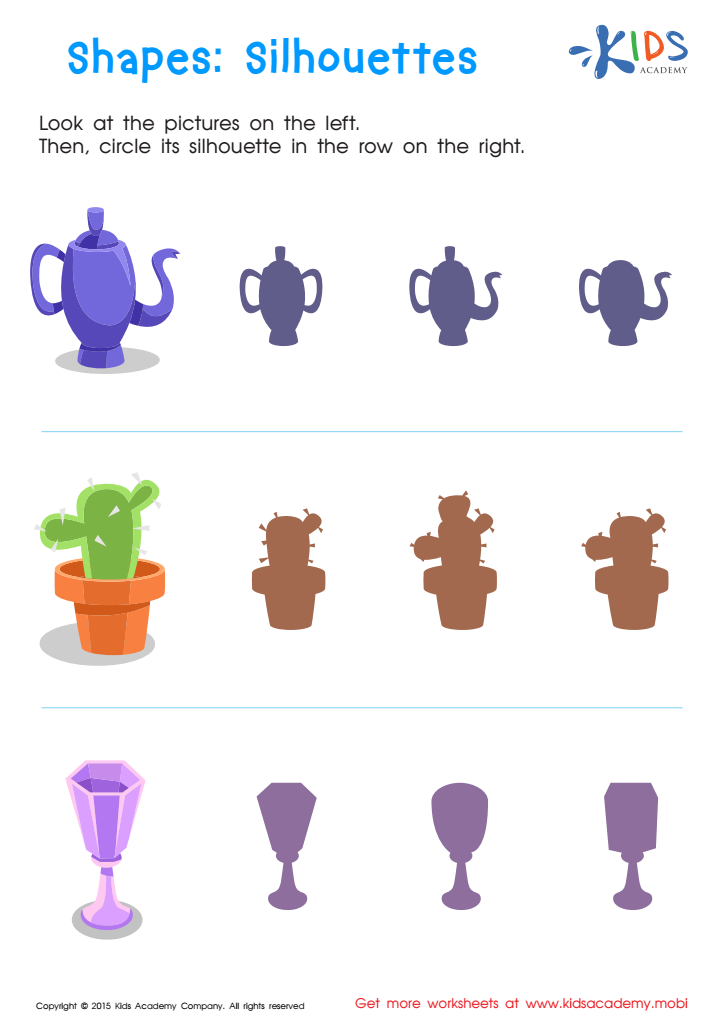

Silhouettes – Shapes Worksheet
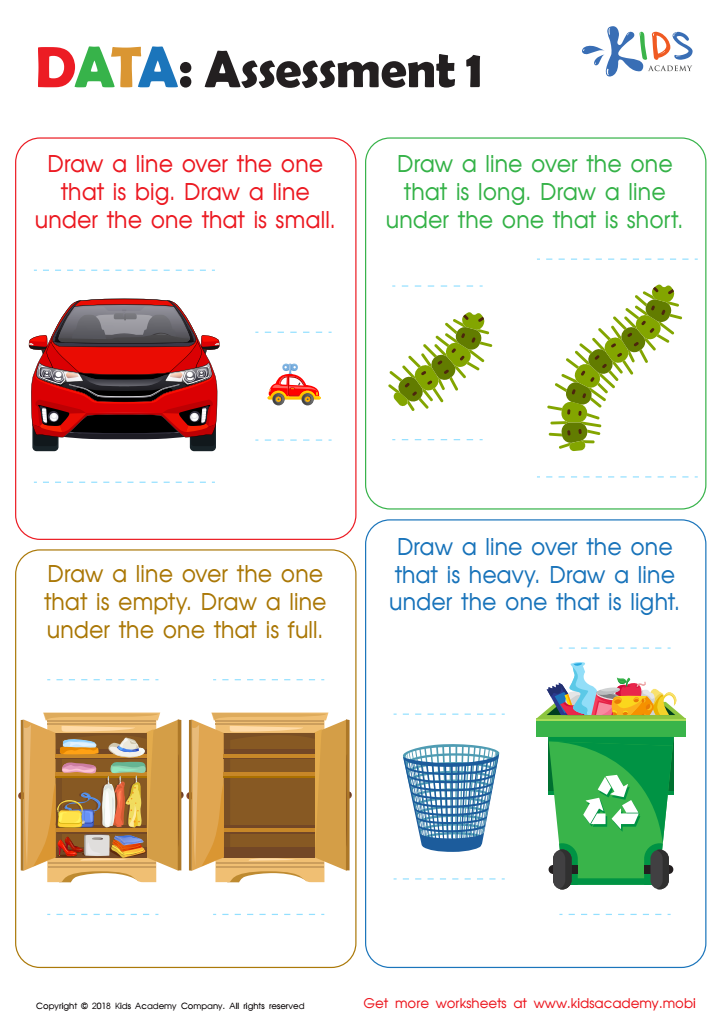

Data: Assessment 1 Worksheet
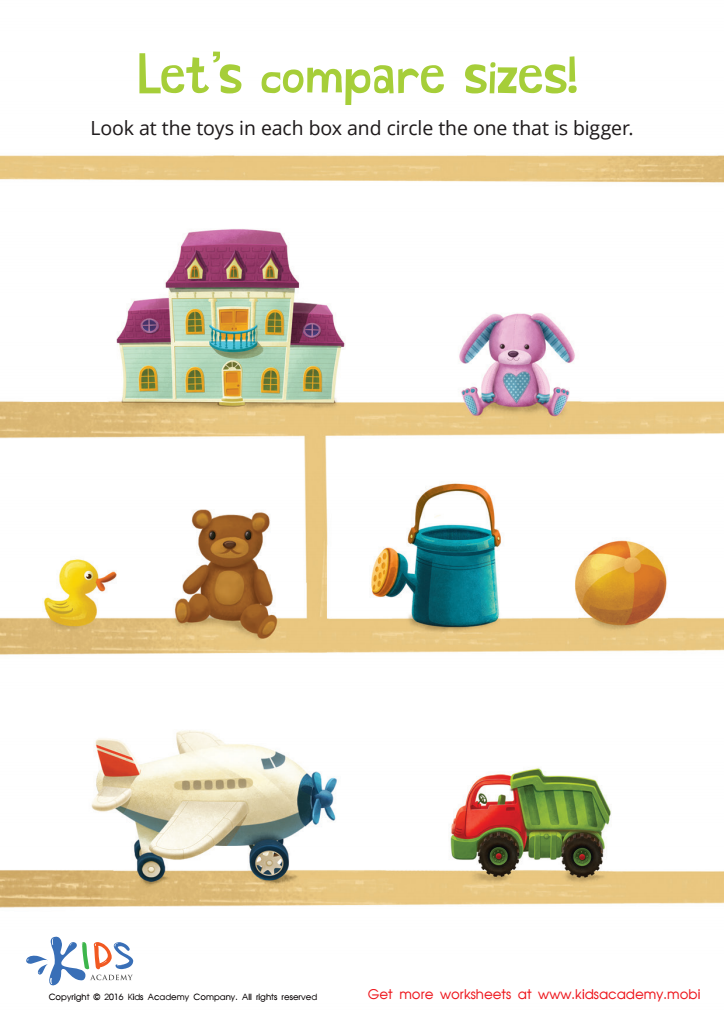

Classifying by Size Sorting Worksheet
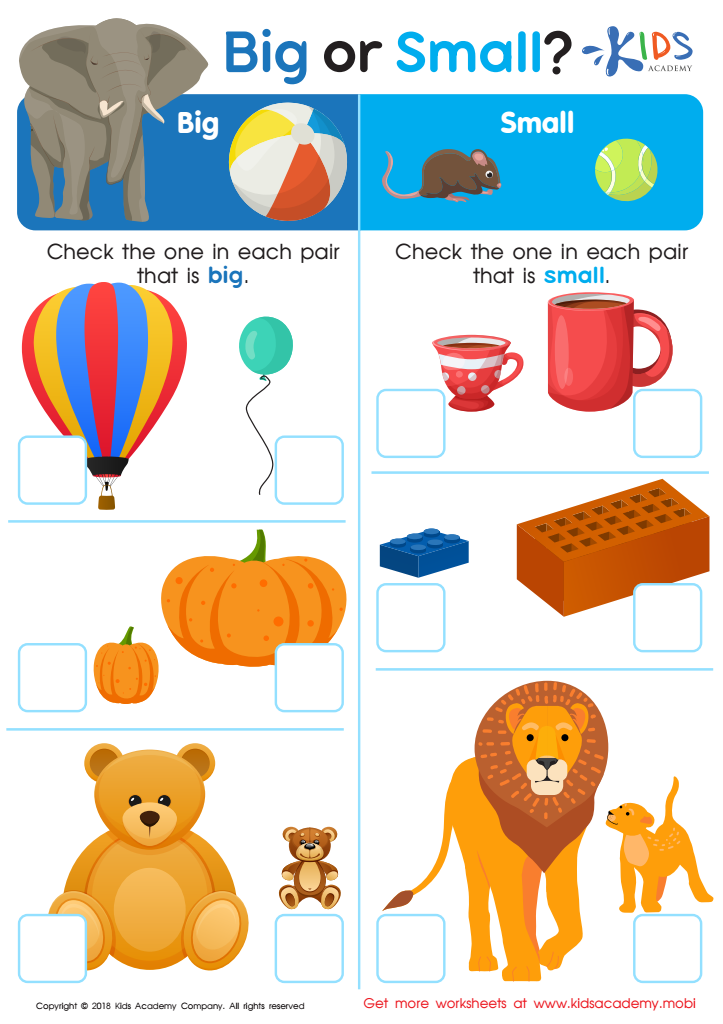

Big or Small? Worksheet
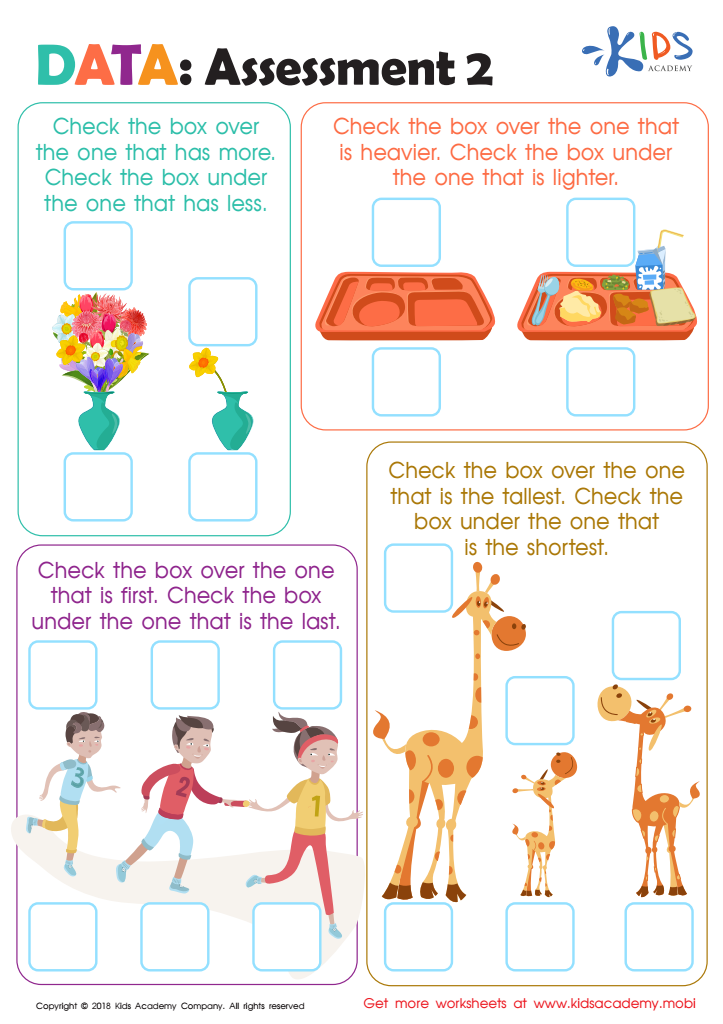

Data: Assessment 2 Worksheet
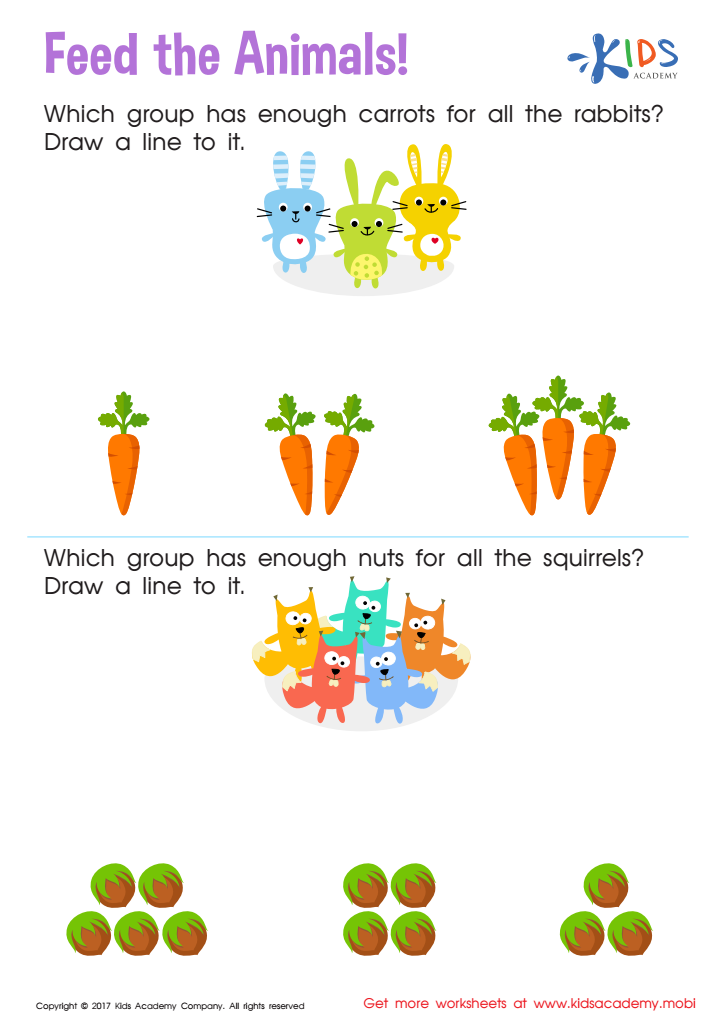

Count and Match: Feed the Animals Worksheet
Parents and teachers should care deeply about comparison for children aged 4-9 because it plays a crucial role in their emotional and social development. At this age, children are beginning to understand their own identities and how they relate to others. When they compare themselves to peers, it can influence their self-esteem, motivation, and sense of belonging. Positive comparisons can foster a healthy self-image, encouraging children to strive for personal goals and develop resilience. Conversely, negative comparisons may lead to feelings of inadequacy, anxiety, and unnecessary pressure.
Furthermore, teaching children how to interpret comparison in a constructive way is essential. It helps them learn to appreciate their own unique strengths while recognizing the skills of others. Parents and teachers can guide children to focus on personal progress rather than competition, promoting collaboration and empathy instead of jealousy or rivalry. Ultimately, nurturing a growth mindset during these formative years can equip children with valuable skills that extend far beyond academics, shaping compassionate and confident individuals. Thus, by prioritizing understanding and constructive self-assessment, parents and educators can create a supportive environment that enhances well-rounded development in young children.
 Assign to My Students
Assign to My Students















